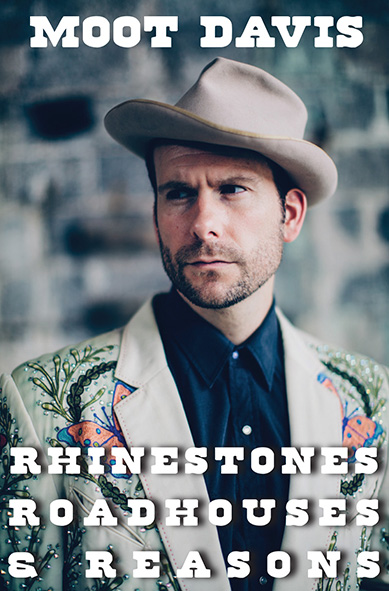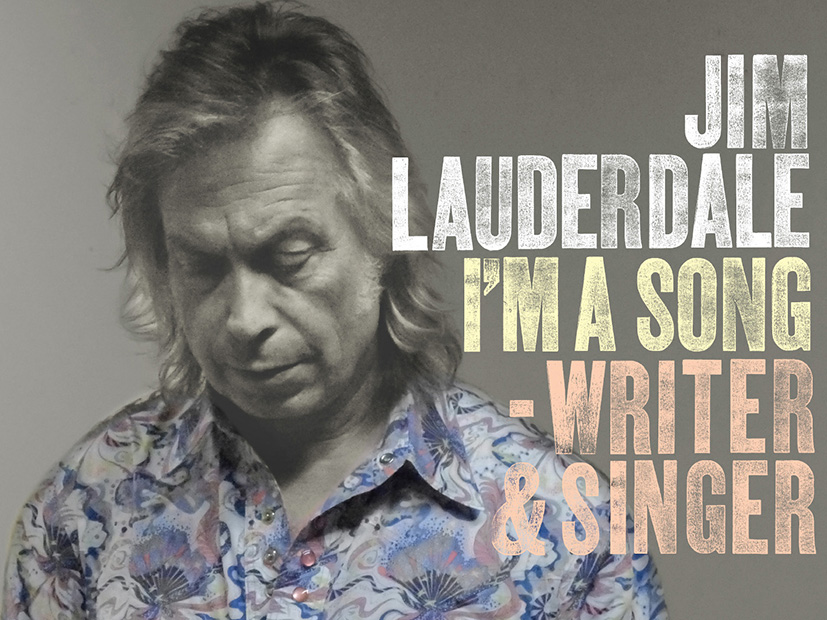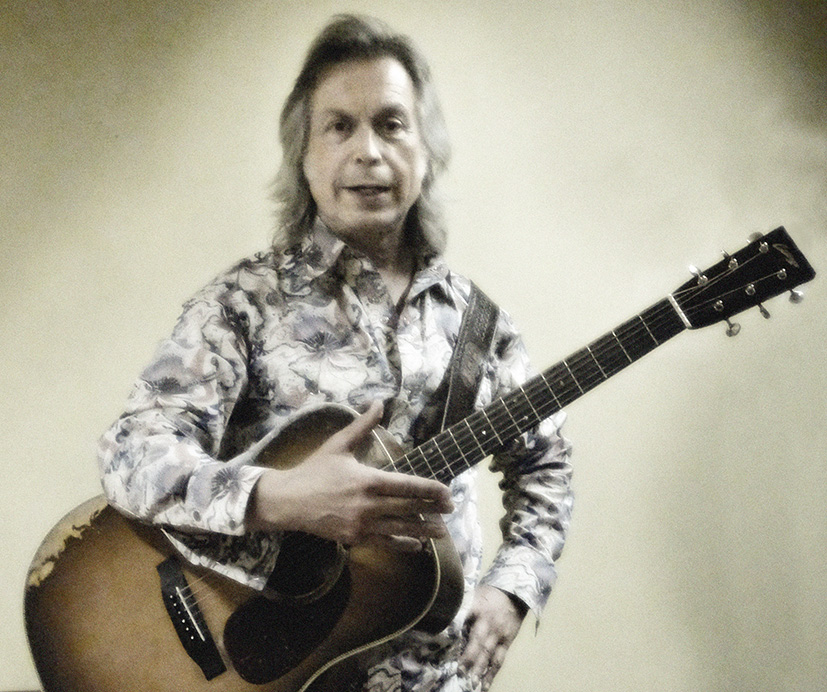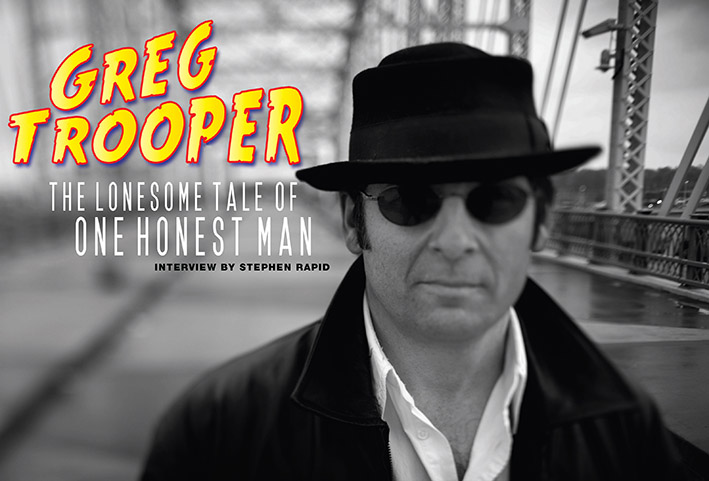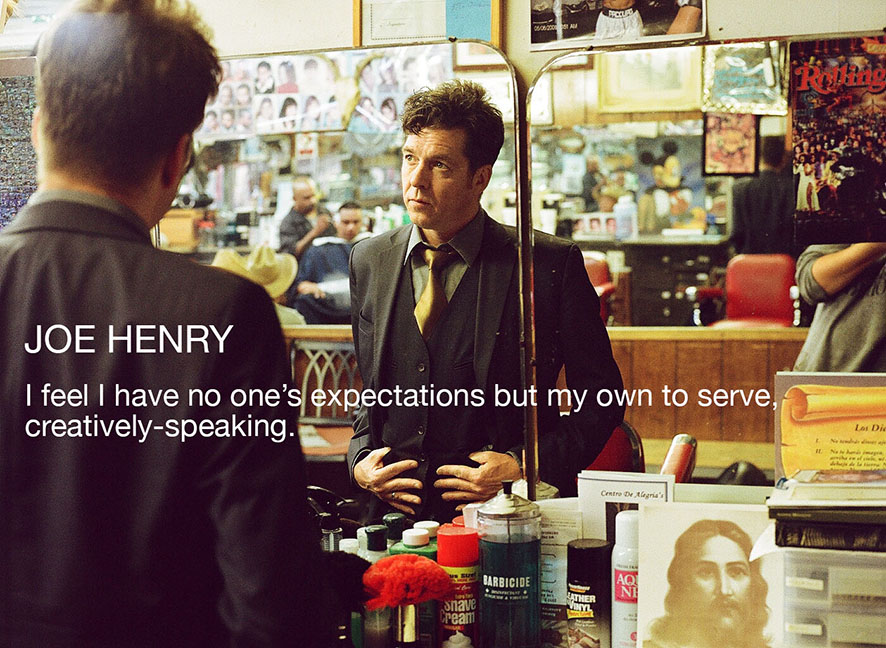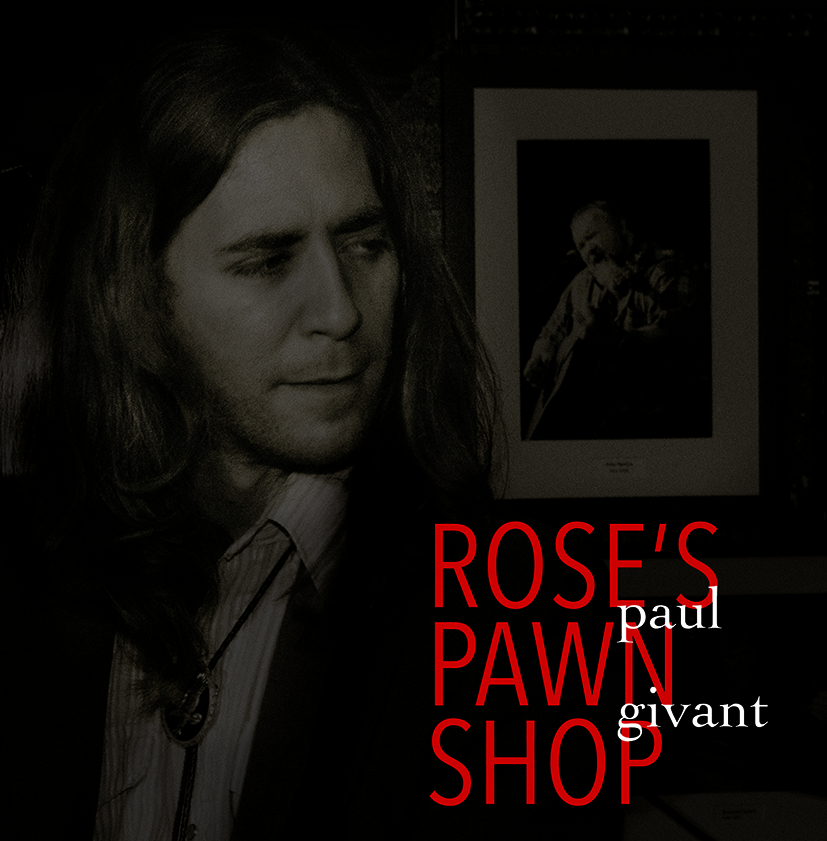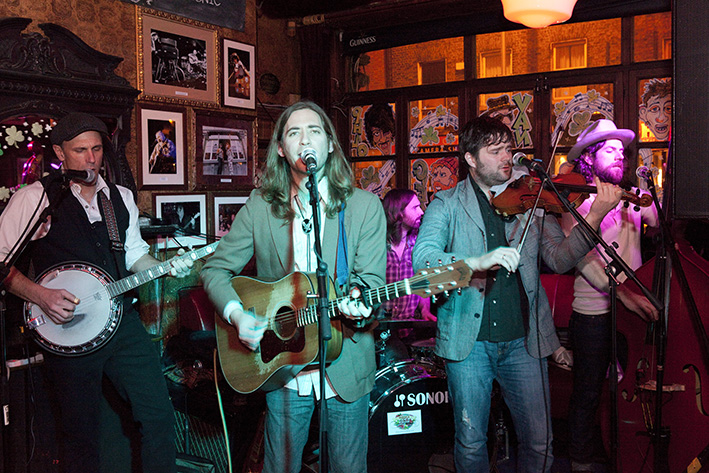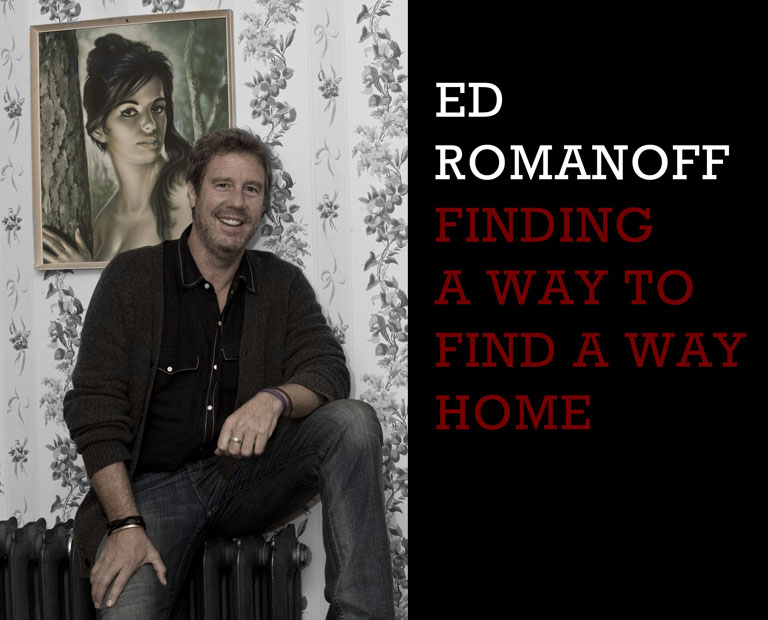
Meeting Ed Romanoff one encounters a friendly and curious man who has had a successful backstage career in the entertainment industry, working on the staging and presentation of a wide range of shows and events. He comes late to the world of being on stage rather than backstage and is a talented writer and engaging performer in his own right. We talked to Ed before his first live show in Dublin.
You were a late starter to songwriting I believe?
Yes, I was. It's something I became interested in in 2009. I had a thought that I really wanted to start writing songs, so I started to go to songwriting retreats. That's where I met Mary (Gauthier). She was teaching, as was Darrell Scott and Beth Nielsen Chapman. I also met Josh Ritter there. He and I became good friends. I'm a curious person by nature so I wanted to know the craft side. Just what makes it work, how could you build a song that would hold up, before you get into the inspired side of writing, of what you're trying to say?
Then there was another guy who I met out in California who was really interesting. He took apart a lot of the Beatles' songs and analyses why they worked. I don't know if they were aware of what they were doing and that they were doing it intentionally, but there's a pattern to a lot of Beatles' songs. I find that kind of stuff compelling.
So I was a late starter and I guess you know my story? Which is; I thought I was tone-deaf and in the family I grew up in, my father was tone-deaf, so I didn't sing. But I liked music and I started to play the guitar and I wanted to write some songs so I started to take voice lessons. That was with a guy named Bill Riley who is a voice coach in the city, in Manhattan. He works with people like Celine Dion, Stevie Wonder and Pavarotti. The first time I went to see him (Riley) I was so nervous to be sitting in the same seat that Bruce Springsteen sat (in), I could barely breathe. I was nervously sitting there and he said "first of all, your posture's terrible and you have cleared your throat 20 times since you walked in the door and I'm not doing anything until you gargle". He took me in the kitchen a made a baking soda mixture with warm water which he had me gargle.
That was about two and a half years ago. Working with him I have extended my range dramatically. I could sing maybe within twelve notes and now I have three octaves. I had four notes in the low end I didn't know existed. None of the high end too. That was something I would never have even tried. So it turned out I'm not tone-deaf as I had thought I was. The father I grew up with I had discovered was not my father.
Some people sing so great and they talk good. Whereas if you don't sing that good, and that's a category I put myself, you have to think about what you’re saying. I also come from the Mary Gauthier school. I was taking her class and I knew her a little bit, but not that well, and I knew she was working on her record about having been adopted (The Foundling) so I sent her a demo of a song I'd written called Orphan King and she liked it and she asked me to finish it with her. I couldn't believe it, as a student for your teacher to say "I like your demo let's go work on it down in New Orleans". That, at the orphanage where I was left on the day I was born, and that was like as if John Prine had said "hey, do you want to go and get a sandwich".
So we flew down to New Orleans and we stayed near the orphanage in a hotel, this was after Katrina, and the place was in bad shape. I literally slept with my boots on as there had been a power outage earlier and there had been people outside my window trying to figure out how they could get in. I figured that if they got in I could run down the hallway. We then finished the song The Orphan King and it got on the record, stunningly. Working on that song was an eye opener to me as it was the first time for me to see a person's process. Mary is the bar by which I aim to be. We went through probably 80 drafts of that song. It was so fascinating to watch how she worked. She's inspired and she's hard working. She comes at thing with an insight. She says amazing things, so I used to follow her around with a note book. Every single word was looked at and when we were done she said “if anyone asks you just tell them we wrote it in the cab on the way to the studio” (laughs).
Some writers spend a lot of time getting a song right.
It matters. I'm pretty new at it as I've only been writing since 2009. I have found that for me, and my experience is limited, that it helps me to get close to where I think it's done and then to play it out at some clubs where I get a chance to play and I find out how the songs ‘grows up’ in a way. There are certain words you feel fall away and areas where you begin to feel that something else might work better.
For those of us who are fascinated by the process of making music it's important to be involved in some way.
I agree. That's why I started to work as a producer behind the scenes. I produced entertainment shows for years and years. I did comedy with all kinds of people from Jay Leno, George Burns and a lot of country acts - Reba McEntire. I worked with a lot of Motown bands too, producing their live shows. I liked being around it. But I never dreamed that I would be on a stage, ever. A, I was terrified and B, I didn't think that I could do it.
The one cover on the album is the Harlan Howard, Hank Cochran song I Fall To Pieces. How did that come about?
A friend of mine said why not do that Patsy Cline cover and I thought "mmm, a Patsy Cline cover? That's insane. Why would I do that?” but I played it and I really connected with the song. Then I found out that (co-writer) Harlan Howard had been in a lot of foster homes as a kid and it apparently ended up with him being in a foster home where his mother lived and so the legend goes that song is really about his mother, but who knows if that's true?
When I started playing it and it started to go down well live and when I started to work with Crit Harmon as a producer, who's fantastic, he said let's move it down one and a half steps and swamp it up a little bit. I had a mixed sense about it and I was looking for something on it. In the studio Duke Levine was playing the riff and in doing it I had made a mistake on one of the words. When you have great writers like that you don't change the words and I said "Crit, I got to redo that as I sang one of the words wrong". He said "No. It's done, don't break it". That was our one pass. It was our practice run and he said "don't break it". I was thinking I've song a word wrong and people are going to think that I think I know better. So I said "Please let me sing it again" and he insisted that as I was playing it on the acoustic the mics were picking up everything and it wouldn't work.
Crit Harmon is a believer in that there is a magic to certain takes, and it's hard to figure out which one it is, and if you start thinking too much you're just singing words. It now seems right to me that very often the first one has got a certain charm to it. So what he did was after we'd done the basic tracks, there are four tracks I believe where the vocal was the first take, and we went back and we took those basic tracks and every night we did one shot at each song. We had a candle lit and a cup of whiskey and we did it like a show. We did that four nights in a row and we picked the best first passes. So there's very little punching in. In the end it was worth it. And almost invariably it was the first one of the night that had it. It's one of the reasons why I Fall To Pieces went so well for us as it's such a perfect song. I feel if the writing's worked out in advance then the other stuff falls into place. If there's something not right with the song, then it can take a bunch of time to fix.
Covers tend to say something about a writer by the choices that are made in picking a song.
Josh and I have talked about this as I was deciding whether to put a cover on the album and he said "You know sometimes it's hard for people to decide if they like somebody until they hear how you interpret someone else's song". I thought that was interesting. I have been opening for a woman recently called Rachael Yamagata. She's a really special writer - she's like, if this is possible, the female Townes Van Zandt of female piano singer/songwriters. She just says and does things that she doesn't know why she's doing them. She is so special. She invited me to go on the road with her and she's in that same place as Mary. I couldn't believe it when she invited me.
I opened for her on one show and this is when I was working behind the scenes, about five or six years ago. And I didn't play piano but I started to take piano lessons when I was doing the voice lessons. So anyway I wanted to play a song of hers that I was there the day they recorded it as I felt a connection to it. So I played one of her songs opening for her and it was interesting because the people in the audience knew the song so they were able to sing along. It might have been a bit of a crazy choice to cover the song of the act you’re opening for, but that's the thing about being a little naive about it. I don't know enough to know when I'm doing something, so that allows me take some chances. Now I'm going to get to play it on tour with her and sing the song with her.
What do you intend to do next?
I'm halfway through the next record. I'm working on two projects right now - one is a book and the other is the next record. The songs I did for this record are all basically true stories. Lady Luck is about my cousin. TwoYellow Roses is about my hometown. St Vincent is kinda autobiographical, Sacred Wrecks the same. But, to be honest, I'm over that, but I had to get them out, I guess. They were sort of in the way. So now I've got one about a bank robber named Willie Sutton. He's famous in the US, he's was an Irishman actually. He robbed 200 banks but got pardoned by Governor Rockefeller. That was because he was such a popular guy and Rockefeller wanted to get re-elected, pardoned him and did get re-elected. I found that very interesting so I write the song about him and I really like it.
The songs I'm doing right now they feel the same but their happy and they're kinda on the other side of things. Another that I've finished that I like a lot is called Less Broken Now. There was a woman in my office who got Lyme Disease and she almost died. But, thankfully, she survived and I went to see her and I went to give her a hug but she had wires hanging out and I said "I don't want to hurt you" and she said "oh, it's ok I'm a little less broken now". So I took that and wrote a song about a relationship. So I'm having a lot of writing about these different things.
What's the book about?
The book is about... it started with the DNA test I took with Mary. We were on the road and she said she was going to take this DNA test because she don't know who her family was and so I said "I'll take it too". I woke up one morning and I looked in the mirror and all these years I thought I was a composite of my parents. So I saw my Mum and my Dad in the mirror and then I look and I'm thinking "ok, who's this half?".
That was a weird feeling and as I like puzzles I thought "well here's one". So I wanted to solve it. I decided I could either hand it off and get someone to look into it or do it myself. So what I did was, when my mother died, I went through her address book and her scrap book and then I flew round the country and started to interview my mother’s friends. So the book is about the conversations I had with these elderly women and from that I found out what happened. It was amazing and these women were so funny. I didn't find out who my father was but I found out how it happened. Then I found a family who it could have been but the guy had passed away so I met his kids and we have since become really good friends.
It also turned out that my DNA matched this guy Niall Of The Nine Hostages. I was like "this can't be right" so I sent it in and the science was done with this group who said "you're in". So my name is in now next to McCracken, O'Malley, O'Connell. A bit like a New York City fire department roster. (laughs). Then it's Romanoff! But it turns out we're related. This family who I have now become friends with, they have the exact same DNA, but not the same genome. So they are also related and they didn't know it either. We're actually distant cousins, not half-siblings. In the DNA breakdown there was 4% Ghanaese and I can't dance (laughs). I have to really practice with a metronome for tempo. I was told that this was over a very long period of time. But the majority was Irish. I didn't believe it at first.
Meeting Ed Romanoff one encounters a friendly and curious man who has had a successful career in the background of the entertainment industry working on the staging and presentation of a wide range of shows and events. He comes late to the world of being in stage rather than backstage and is a talented writer and engaging performer in his own right. We talked to Ed before his first live show in Dublin.
You were a late starter to songwriting I believe?
Yes I was. It's something I became interested in in 2009. I had a thought that I really wanted to start writing songs, so I started to go to songwriting retreats. That's where I met Mary (Gauthier). She was teaching, as was Darrell Scott and Beth Nielsen Chapman, I also met Josh Ritter there. He and I became good friends. I'm a curious person by nature so I wanted to know the craft side. Just what makes it work, how could you build a song that would hold up before you get into the inspired side of writing of what you're trying to say?
Then there was another guy who I met out in California who was really interesting. He took apart a lot of the Beatles' songs and analyse why they worked. I don't know if they were aware of what they were doing and that they were doing it intentionally but there's a pattern to a lot of Beatles' songs. I find that kind of stuff compelling.
So I was a late starter and I guess you know my story? Which is that I thought I was tone-deaf and in the family I grew up in my father was tone-deaf, so I didn't sing. But I liked music and I started to play the guitar and I wanted to write some songs so I started to take voice lessons. That was with a guy named Bill Riley who is a voice coach in the city, in Manhattan. He works with people like Celine Dion, Stevie Wonder and Pavaroti. The first time I went to see him I was so nervous to be sitting in the same seat that Bruce Springsteen sat, I couldn't barely breathe. I was nervously sitting there and he said "first of all, your posture's terrible and you have cleared your throat 20 times since you walked in the door and I'm not doing anything until you gargle". He took me in the kitchen a made a baking soda mixture with warm water which he had me gargle.
That was about two and a half years ago. Working with him I have extended my range dramatically. I could sing maybe within twelve notes and now I have three octaves. I had four notes in the low end I didn't know existed. None of the high-end too. That was something I would never have even have tried. So it turned out I'm not tone-deaf as I had thought I was. The father I grew up with I had discovered was not my father.
Some people sing so great and they talk good.Whereas if you don't sing that good, and that's a category I put myself, you have to think about what your saying. I also come from the Mary Gauthier school. I was taking her class and I knew her a little bit but not that well and I knew she was working on her record about having been adopted (The Foundling) so I sent here a demo of a song I'd written called Orphan King and she liked it and she asked me to finish it with her. I couldn't believe it, as a student for your teacher to say "I like your demo let's go work on it down in New Orleans". That at the orphanage where I was left on the day I was born and that was like as if John Prine had said "hey, do you want to go and get a sandwich".
So we flew down to New Orleans and we stayed near the orphanage in a hotel, this was after Katrina, and the place was in bad shape that I literally slept with my boots on as there had been a power outage earlier and there had been people outside my window trying to figure out how they could get in. I figured that if they got in I could run down the hallway. We then finished the song The Orphan King and it got on the record, stunningly. Working on that song was an eye opener to me as it was the first time for me to see a person's process. Mary is the bar by which I aim to be. We went throughly probably 80 drafts of that song. It was so fascinating to watch how she worked. She's inspired and she's hard working. She comes at thing with an insight. She says amazing things, so I used to follow here around with a note book. Every single word was looked at and when we were done she said if anyone asks you just tell them we wrote it in the cab on the way to the studio (laughs).
Some writers spend a lot of time getting a song right.
It matters, I'm pretty new at it as I've only been writing since 2009, I have found that for me and my experience is limited that it helps me to get close to where I think it's done and then to play it out at some clubs where I get a chance to play and I find out how the songs grows up in a way. There are certain words you feel fall away and areas were you begin to feel that something else might work better.
For those of us who are fascinated by the process of making music it's important to be involved in some way.
I agree, that's why I started to work as a producer behind the scenes. I produced entertainment shows for years and years. I did comedy with all kinds of people from Jay Leno, George Burns and a lot of country acts - Reba McIntyre. I worked with a lot of Motown bands too producing their live shows. I liked being around it. But I never dreamed that I would be on a stage, ever. A, I was terrified and B, I didn't think that I could do it.
The one cover on the album is the Harlan Howard, Hank Cochran song I Fall To Pieces how did that come about?
A friend of mine said why not do that Patsy Cline cover and I though "mmm, a Patsy Cline cover? That's insane". Why would I do that but I played it and I really connected with the song. Then I found out that (co-writer) Harlan Howard had been in a lot of foster homes as a kid and it apparently ended up with him being in a foster home where his mother lived and so the legend goes that song is really about his mother, but who knows if that's true?
When I started playing it and it started to go down well live and when I started to work with Crit Harmon as a producer, who's fantastic, he said let's move it down one and a half steps and swamp it up a little bit. I had a mixed sense about it and I was looking for something on it. In the studio Duke Levine was playing the riff and in doing it I had made a mistake on one of the words. When you have great writers like that you don't change the words and I said "Crit, I got to redo that as I sang one of the words wrong". He said "No. It's done, don't break it". That was our one pass it was our practice run and he said "don't break it". I was thinking I've song a word wrong and that people are going to think that I think I know better. So I said "Please let me sing it again" and he insisted that as I was playing it on the acoustic the mics were picking up everything and it wouldn't work.
Crit Harmon is a believer in that there is a magic to certain takes and it's hard to figure out which one it is and if you start thinking too much you're just singing words. I now seems right to me that very often the first one has got a certain charm to it. So what he did after we'd done the basic tracks, there are four tracks there I believe were the vocals was the first take, and we went back and we took those basic tracks and every night we did one shot at each song. We had a candle lit and a cup of whiskey and we did it like a show. We did that four night in a row and we picked the bet first passes. So there's very little punching in. In the end it was worth it. And almost invariably it was the first one of the night that had it. It's one of the reasons why I Fall To Pieces went so well for us as it's such a perfect song. I feel if the writing's worked out in advance then the other stuff falls into place. If there's something no right with the song then it can take a bunch of time to fix.
Covers tend to say something about a writer by the choices that are made in picking a song.
Josh and I have talked about this as I was deciding whether to put a cover on the album and he said "You know sometimes it's hard for people to decide if they like somebody until they hear how you interpert someone else's song". I thought that was interesting. I have been opening for a woman recently called Rachael Yamagata. She's a really special writer - she's like, if this is possible, the female Townes Van Zandtz of female piano singer/songwriters. She just says and does things that she doesn't know why she's doing them. She is so special. She invited me to go on the road with her and shes's in that same place as Mary. I couldn't believe it when she invited me.
I opened for her on one show and this is when I was working behind the scenes., about five or six years ago and i didn't play piano but I started to take piano lessons when I was doing the voice lessons. So anyway I wanted to play a song of hers that I was there the day that they recorded it as I felt a connection to it. So I played one of here songs opening for her and it was interesting because the people in the audience knew the song so they were able to sing along. It might have been a bit of a crazy choice to cover the song of the act your opening for but that's the thing about being a little niave about it. I don't know enough to know when I'm doing something so that allows me take some chances. Now I'm going to get to play it on tour with her and sing the song with her.
What do you intend to do next?
I'm halfway through the next record. I'm working on two projects right now - one is a book and the other is the next record. The songs I did for this record are all basically true stories. Lady Luck is about my cousin. TwoYellow Roses is about my hometown. St Vincent is kinda autobiographical, Sacred Wrecks the same. But, to be honest, I'm over that but I had to get them out, I guess. They were sort of in the way. So now I've got one about a bank robber named Willie Sutton. He's famous in the US, he's was an Irishman actually. He robbed 200 banks but got pardoned by governor Rockerfeller. That was because he was such a popular guy and Rockerfeller wanted to get re-elected, pardoned him and did get re-elected. I found that very interesting so I write the song about him and I really like it.
The songs I'm doing right now they feel the same but their happy and they're kinda on the other side of things. Another that I've finished that I like a lot is called Less Broken Now. There was a woman in my office who got limes disease and she almost died. But, thankfully, she survived and I went to see her and I went to give her a hug but she had wires hanging out and I said "I don't want to hurt you" and she said "oh, it's ok I'm a little less broken now". So I took that and wrote a song about a relationship. So I'm having a lot of writing about these different things.
What's the book about?
The book is about... it started with the DNA test I took with Mary. We were on the road and she said she was going to take this DNA test because she don't know who her family was and so I said "I'll take it too". I woke up one morning and I looked in the mirror and all these years I thought I was a composite of my parents. So I saw my Mum and my Dad in the mirror and then I look and I'm thinking "ok, who's this half?".
That was a weird feeling and as I like puzzles I thought "well here's one". So I wanted to solve it. I decided I could either hand it off and get someone to look into it or do it myself. So what I did was, when my mother died, I went through her address book and her scrap book and then I flew round the country and started to interview my mother;s friends. So the book is about the conversations I had with these elderly women and from that I found out what happened. It was amazing and these women were so funny. I didn't find out who my father was but I found out how it happened. Then I found a family who it could have been but the guy had passed away so I met his kids and we have since become really good friends.
It also turned out that my DNA matched this guy Niall Of The Nine Hostages. I was like "this can't be right" so I sent it in and the science was done with this group who said "you're in". So my mane is in now next to McCracken, O'Malley, O'Connell. A bit like a New York city fire department roster. (laughs). Then it's Romanoff! But it turns out we're related. This family who I have now become friends with they have the exact same DNA, but not the same genome. So they are also related and they didn't know it either. We're actually distant cousins not half-siblings. In the DNA breakdown there was 4% Ghanaese and I can't dance (laughs). I have to really practice with a metronome for tempo. I was told that this was over a very long period of time. But the majority was Irish. I didn't believe it at first.
Welcome to the tribe Ed.
Interview by Steve Rapid. Photography by Ronnie Norton
